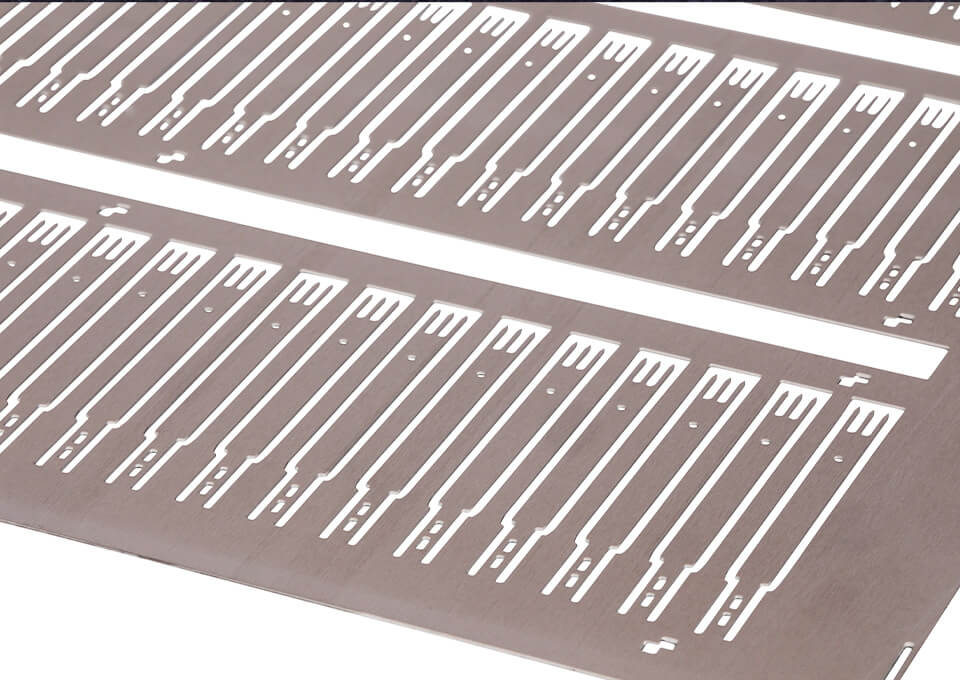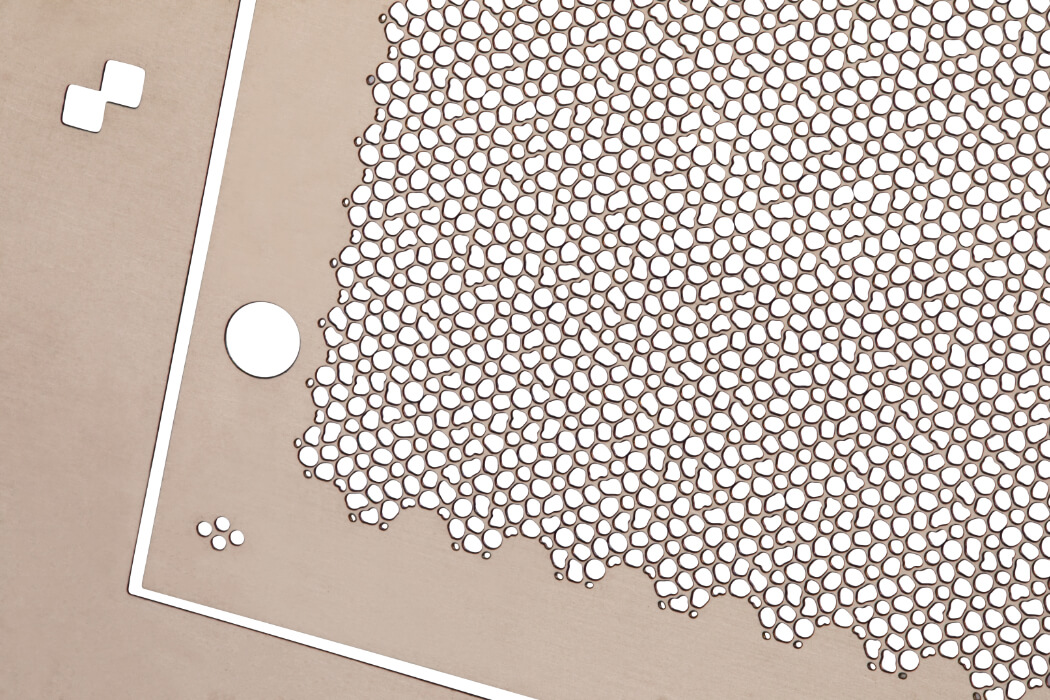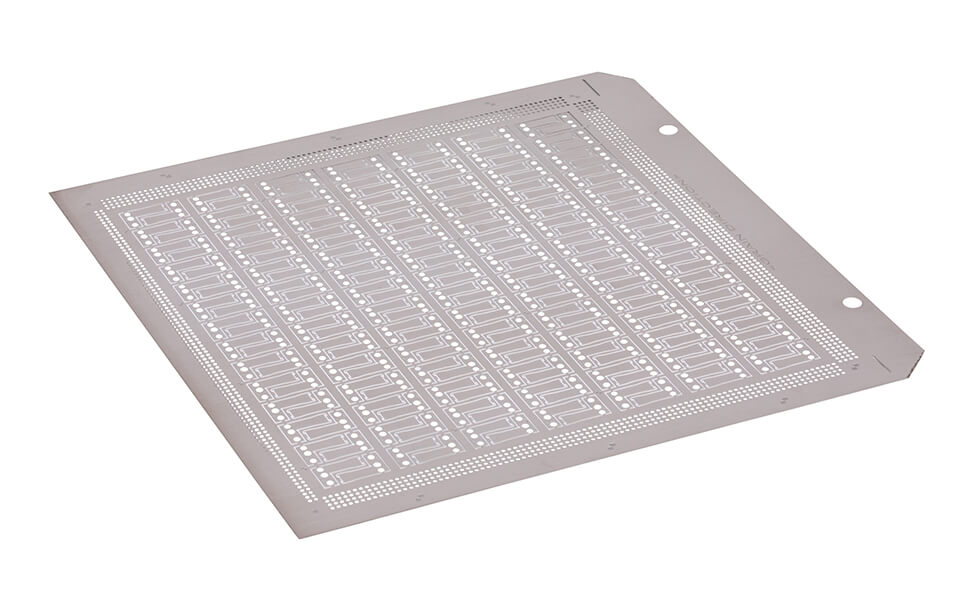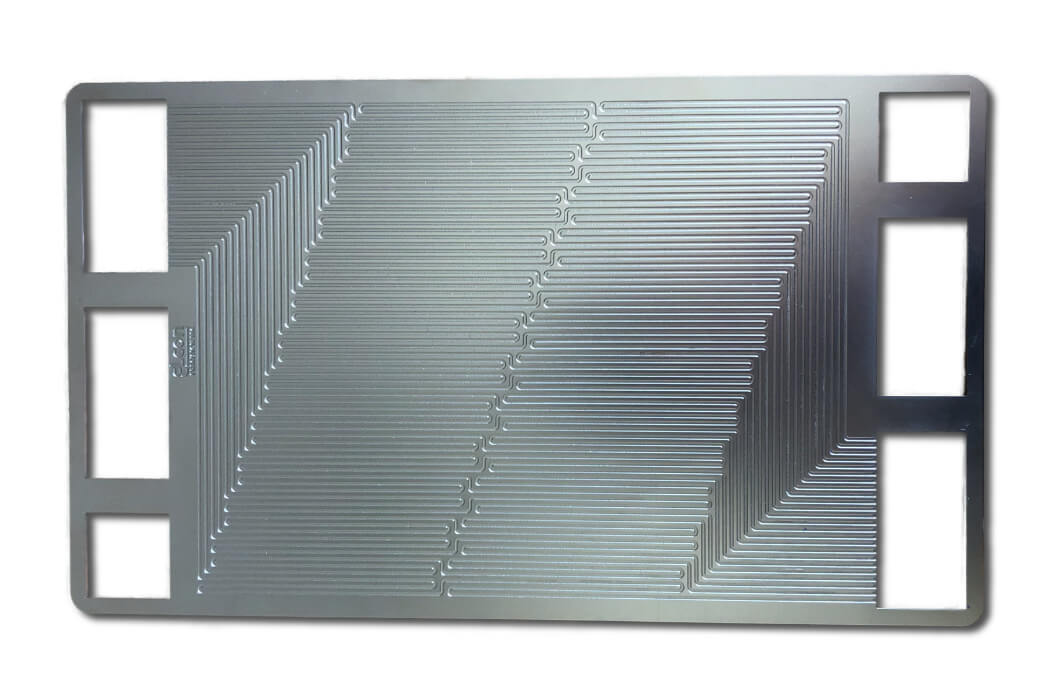
Etching of all grades of titanium, including CP Grade 1, CP Grade 2, CP Grade 3, CP Grade 4, CP Grade 5, and Grade 6A-3
Titanium Etching for High-Strength, Lightweight Parts
Titanium is sometimes called a wonder metal because of its remarkable combination of properties:
- High-strength & lightweight: Titanium has a high strength-to-weight ratio that makes it ideal for components in aerospace and defense applications, where reduced weight is crucial for fuel efficiency and maneuverability, and strength is needed for higher payload capacity.
- High melting point: Titanium has a high melting point, making it capable of withstanding extreme temperatures and excellent fatigue resistance, meaning it can withstand repeated stress cycles without failure. Titanium parts deliver high performance even when subjected to constant stress, vibrations, and load fluctuations, making them ideal for aerospace and defense applications.

Impervious Titanium
Titanium is often referred to as an “impervious” metal due to these properties:
- Corrosion-resistance: Titanium owes its impervious nature to the titanium dioxide layer that forms on its surface when exposed to air or oxygen. This impervious and chemically stable layer protects the titanium surface against harsh or corrosive environments, such as seawater, acids, alkalis, and industrial chemicals. It acts as a barrier and shields the underlying metal from further oxidation and degradation.
- Biocompatibility: Titanium is non-toxic and well-tolerated by the human body and does not cause any adverse reactions when it interacts with bodily fluids. This property makes it an excellent choice for medical implants, as it reduces the risk of rejection and promotes successful integration with surrounding tissues. Titanium is one of the only metals that allows for osseointegration, where your body’s natural bone and tissue bond to an artificial implant.

Our Etching Capabilities
- Etching of all grades of titanium, including CP Grade 1, CP Grade 2, CP Grade 3, CP Grade 4, CP Grade 5, Grade 6A-3, and nitinol
- Use of DFARS-compliant titanium where required
- Etching of up to 0.040″ thick sheets ranging up to 22×12 inches
- Tolerances of ±.0005″ in many applications

Titanium Applications
- Bipolar plates for fuel cells or electrolyzers
- Medical devices, medical meshes or plates
- Spinal implants
- Aircraft components
- Plate heat exchangers (brazed or diffusion-bonded)
- Orthopedic devices and implants
- Spacecraft components
- Alternative for aluminum components



